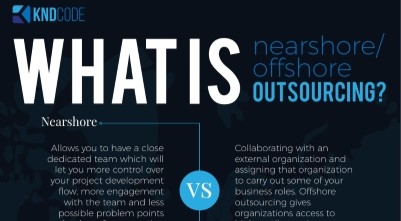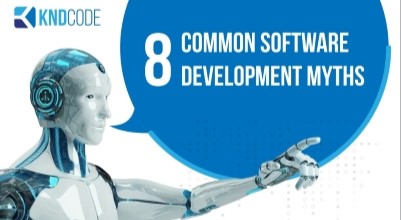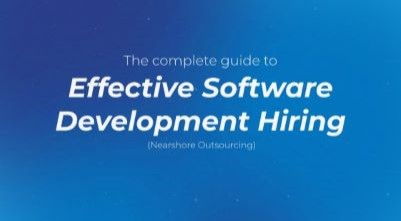How Artificial Intelligence Is Transforming Businesses
Artificial intelligence (AI) is one of the hottest trends in recent years and has been heralded as a potential game-changer for business, both from an operational standpoint and as a potential source of innovation. AI has been around since 1950 as an academic discipline, but its explosive commercial growth is relatively recent.
AI is an umbrella term that describes not just one thing, but a spectrum of techniques that include machine learning, deep learning, and natural language processing. Different types of AI can be used for various purposes. For example, a company might use machine learning to analyze customer data and then use natural language processing to provide personalized responses to customer inquiries. Machine learning is also readily used by many companies to offer personalized recommendations to customers and even make predictions about their future behaviors.
With the rising popularity of AI in the business world, it is crucial for business managers to understand its potential applications and the relevance in their specific sector. What was an emerging field of study has now become a business necessity.
Leveraging AI across industries
AI has been proven to be beneficial for any modern industry that deals with a customer-centric approach. However, its applications are not merely limited to customer service. From fraud detection, human resources, and marketing, many companies are investing in AI to improve their business processes.
A business can benefit from artificial intelligence in many ways, including:
• Forecasting future trends with AI-powered insights tools
• Providing better customer service through smart chatbots
• Implementing predictive maintenance on machines or equipment with AI-powered maintenance software
• Enhancing predictive analytics by unearthing insights that would otherwise escape previous methods
"For example, AnyBank's credit card loyalty program could utilize machine learning to determine that 1,000 of its male members live near a golf course, have not golfed before, but enjoy sports. The program also determines that many female members in the loyalty program are equally likely to be interested. It also sets parameters for the golf season in certain climate zones, such as the Southern U.S. It further determines a microsegment to offer Saturday afternoon to men and women without young children, who can more likely take the time on a Saturday." (Vance Reavie, Forbes)
This form of highly focused insight can be generated at scale throughout different segments for any given enterprise. Thus, making it possible to develop strategies using this information to improve products, services, and even entire companies. This type of high-level insight allows companies to reach clear conclusions about what might be causing a key competitive advantage to get away, along with correct steps to address the oversight. Applications are not limited to long-term decision-making or marketing strategies either. There are other areas where fast-paced and dynamic interactions greatly benefit from a tight AI integration.
"Instead of relying on old data and information, we use information that's very active, interactive, and transparent so we can make the most informed decisions for our patients and their care," says James Scheulen, Johns Hopkins Medicine's chief administrative officer for emergency medicine and capacity management. Results such as a 63 minute reduction for ambulance dispatch times and a 60% improvement in patient admittance for complex conditions show how informed decision-making, coupled with intelligent systems, can make a real impact by optimizing existing processes.
With these tools at hand, organizations can react faster than ever before to constantly changing conditions and, at the same time, possess an ever-improving asset that provides a sustainable competitive advantage.

Challenges for organizations seeking to implement AI
Arguably the biggest hurdle of any AI project is a well-prepared data set. The best data set is one that is carefully annotated and well-organized. It should also be large enough to serve as a representative sample of the larger population of interest. A high-quality data set can be compiled by curating existing in-house data. It may not need to be perfect; however, it needs to be curated well enough for a machine learning model to reach its full potential. Data sets can also be obtained through crowdsourcing, purchase from data providers, or through research. Whatever the source might be, the sensitive nature of this type of data in large amounts necessitates businesses to look into a robust and secure data management environment. Such an environment ensures that businesses will not only be able to safeguard their sensitive information, but also have easy access to all the data they need for their AI projects.
Another challenge is identifying the areas of business where AI can realistically have the most significant impact. Various types of AI can be implemented independently or alongside other software solutions, such as CRM and marketing automation software.
A vital step is identifying where best to integrate AI into the organization's processes in order to maximize ROI. This is a question best answered by a reliable software development service since it is not a one-size-fits-all solution and, therefore, should be carefully considered according to the specific needs of each company.
Finding and hiring the right talent is a common struggle for organizations seeking to utilize artificial intelligence. Software development teams who can work with AI and machine-learning software are in high demand. Still, many don't have the necessary talent pools or the experience to undertake the type of high complexity projects that come with the field of AI.
Outsourcing AI implementation
Outsourcing is an attractive option for companies looking to get their AI software deployed without having to hire a team of data scientists or developers. For many industries, including healthcare, retail, logistics, and finance, assembling a highly specialized team for AI is not feasible. The benefits of outsourcing AI software deployment include: lower cost, faster time-to-market, less dependence on in-house skills.
The cooperation between companies and developers is crucial to the success of any AI project. A good software development service has dedicated processes and human resources to optimize every stage of an AI-related project, from the initial design down to the deployment on live systems. Organizations that get involved in the process and provide valuable feedback can help software teams understand the specific needs of their end-users. This kind of collaboration ultimately leads to better products at lower costs with higher satisfaction levels and overall industry improvement.
KNDCODE specializes in custom software development and nearshore technology solutions, making it the ideal partner for companies in any industry.
KNDCODE, Always Ahead, Forward, Near.
Ebooks
KNDCODE'S eBooks your gateway to knowledge and expertise in software development. Our curated collection of insightful and practical eBooks covers a wide range of topics, helping you enhance your skills and unlock your full potential. Our free eBooks provide valuable insights, best practices, and real-world solutions to empower your career in the ever-changing world of software development.

KNDCODE Credentials
Solutions to the most complex operational challenges.Learn more about our capabilities.
Read more
Nearshore vs Offshore SD
Nearshore vs Offshore Software Development. What's the difference?
Read more
Software Development Myths
Here are 8 common software myths and the truth behind each of them.
Read more
Hiring Guide (Dev)
Have access to the complete guide to effective Software Development hiring
Read more





